#british dialects
Text
Dialect notes! Dialect notes! Dialect notes!
Because I missed my calling in academic research, I've spent a non-zero amount of time going down rabbit holes on early North American dialect for Along The Northern Heights. Is it worth doing all this research for a fanfiction of a PBS kids show from 20 years ago? Well it gives me considerable amounts of joy to write, so yes.
Anyway! I want to share a massive infodump, because writing gives me goodfeels and so does sharing! Please let me know if I am inaccurate or wrong about anything. I am not an academic and furthermore I do not want to spread misinformation.
MASSIVE WORD BLOCK UNDER THE CUT
A Pregame With Disclaimers About "Good" English
The history of Modern English is rife with Big Oof moments, and I'm not just talking about The Great Vowel Shift or Noah Webster deciding that the "u" in "colour" was silly. Especially in the late 18th century, there was a push to make accents more uniform and to establish a single "Good" English - and there is so much aggression towards what those scholars considered "Bad" English. And, in my extremely uneducated opinion, it seems like it's a conveniently moving target, just like "whiteness." In the context I'm in when writing, it positively reeks of shitting on any of the world's population groups that aren't Southeastern England. And, being from the United States, I know all too well the absolute shit that's been lobbed at AAVE for not being "Good" English.
This "Good" vs "Bad" way of looking at dialect is reductive, destructive, and boring, and I think it goes without saying I don't condone it in the slightest.
A Further Pregame With Received Pronunciation, or RP
the "generic" British dialect many of us outside the UK think of when we think of a British accent (a shame, I think, because the UK is so dialect-diverse and there are some absolute bangers on that damp island!) There are certainly a myriad of reasons for this, but probably the most common reasons/claims I've heard through my life are
A) 19th-century upper-class British folk wanting to have a more separate dialect from the other classes.
B) associations with the way the Royal Family has spoken English since at least Queen Victoria (a generic reasoning that we see happen along populations: imitating those in power)
C) 20th-century RP became "generic" in a similar way that the broad North American dialect* now associated with the United States and, to some degree, Canada, did - that is, it was further developed and use encouraged as the easiest to understand when recorded and played-back on period audio recording equipment (specifically radio and television.)
*a timeout is to be made here for the so-called Mid-Atlantic dialect at the dawn of "talkies" and early Hollywood. Its the delightful way of talking you'll hear in old black-and-white movies: slightly musical cadence, and combining the broad north american dialect with a bit of the non-rhoticity of RP. This dialect was mostly affectation and as anyone with living American relatives born before 1960 can tell you, mid-20th-century Americans largely did not speak it in normal settings.
Now, all of this is to say, RP as a dialect doesn't really appear until mid-19th century (although it would seem the loss of rhoticity we so associate with RP was a gradual shift starting in the very end of the 18th century.) Furthermore, the ways that we, 21st-century denizens, know RP don't come into their own until the 20th century and proliferation of audio-based mass media.
On to My Actual Point : 18th Century American Dialect (non-AAVE)*
*I make this distinction because the history of AAVE is a massive topic all on its own and I feel even less qualified to speak on it
It can't be ignored that the base strata making up Anglo-American speech patterns would have been as varied as where the original settlers/invaders came from, nor can it be ignored that the American Colonies were made up of more than just Anglo-Saxon descendants. Even back then, they were a mosaic of cultural interaction, which is why Thomas Paine declared America (at least the white part) a European, and not British, culture.
That being said, multiple primary sources indicate that the dialect of Anglo-Americans at the late 18th/very early 19th century was similar to "well-bred" Londoner dialect of the time (assuming there's enough of a distinction here from broad Southeastern UK,) and that this particular dialect was broadly spoken with less regional variance than the family of dialects in the UK.
This is made clear in vol 3 of Timothy Dwight's Travels in New-England and New-York, a collection of letters sent to colleagues in England:
"I shall not, I believe, offend against either truth or propriety if I say, that the English language is in this country pronounced more correctly than in England. I am not, indeed, sanguine enough to expect, that you will credit the assertion, nor that you will believe me to be a competent judge of the subject. Still I am satisfied that the assertion is true. That you may not mistake my meaning, I observe, that by a correct pronunciation I intend that of London; and, if you please, that of well-bred people in London."
(Dwight, Timothy. Travels in New-England and New-York vol 3 p 265)
Now in context he is only speaking of the New England region, and he does make a disclaimer here that he's not "a competent judge" of the subject, and we are certainly ignoring his hope that he won't be cited on the matter. But, his observation holds true from other primary accounts, especially William Eddis' Letters From America, which are composed of his observations (mostly of Maryland gentry) from 1769 to 1777. (His letters also happen to be an invaluable primary source for observations on culture and political commentary on the rising crisis between the colonies and Britain, from the perspective of a loyal well-to-do British subject.)
On the uniformity of language, Eddis has this to say:
"In England, almost every county is distinguished by a peculiar dialect; even different habits, and different modes of thinking, evidently discriminate inhabitants, whose local situation is not far remote; but in Maryland, and throughout the adjacent provinces, it is worthy of observation, that a striking similarity of speech universally prevails; and it is strictly true, that the pronounciation of the generality of the people has an accuracy and elegance, that cannot fail of gratifying the most judicious ear."
(Eddis, William. Letters from America, Historical and Descriptive. p 59)
if the odd comma placements are making it hard to read, you're not alone. 18th century writing is choc-full of what we might today consider run-on sentences, comma splices, or just generally cumbersome. Here's me paraphrasing as best I can:
"In England, almost every county has its own dialect, habits, and modes of thinking, noticeably different inhabitants that don't live very far from each other; but in Maryland and adjacent provinces, there is a notable similarity of speech, and its absolutely true that the generalized accent/pronunciation has an accuracy and elegance that won't fail to gratify a discerning ear."
----------------------------------------------------------
All this background I'm giving comes to this point: late 18th-century "well-bred" Londoner is the dialect I have chosen to loosely base what I write in Along The Northern Heights. I listen to alot of Simon Roper's work on youtube regarding the topic. I would say these two are probably the most valuable videos on the accent.
youtube
youtube
He makes disclaimers about not being formally qualified to speak on linguistics, and I would be remiss to not pass along those disclaimers.
That being said, what's in my mind is pastiche of that, the local "country" (read: appalachian) dialect in rural Virginia, the dialect work used in Turn:Washington's Spies and HBO John Adams, as well as some of the dialect you hear in PBS Masterpeice's Poldark, and various media I've watched/read from Living History re-enactors about reconstructing dialect.
------------------------------------------------------------------
Since I've made it a headcanon feature that James Hiller has a bit of a brogue that he feels pressured to correct, but slips into when he is excited or upset, I'd like to dig more into less-"proper" dialects of the time, and, if possible, the less-proper Philly accent. For shits and giggles, here's what I suspect is a dramatization of a modern-day Philly accent:
And then a very similar, a very real Baltimore Baldmer accent:
youtube
Honestly? Hearing both of these warms the cockles of my heart, because my late grandparents (especially grandma. *Especially* grandma) spoke with a Baltimore accent, which has similarities with the Philly accent. My aunts and uncles all speak it; its been normalized and blended with a virginia rural accent in mine (I say wadder, my grandma said wooder. I say toosdaye, my grandma said toosdee. I say ahn, grandma said ooowan. I say y'all, grandma said all youse/all you. I say "d'jeet," she said d'jeet, and you can pull d'jeet from my cold dead hands.)
In addition, you have the modern-day "High Tide" dialect of Okracoke, the Carolina Brogue.
youtube
youtube
trouble with Carolina Brouge, which is disappearing, is that its got too much modern-day southeastern drawl to really use as a basis for an 18th century Philly boy. Though it does seem like drawing out the "A" in water into wooder/woader is a commonality.
Anyway. That's been my infodump. I spent too long on this!
#liberty's kids#my writing#linguistics#language#English language#me infodumping#infodump#hyperfixations#dialect writing#english dialects#british dialects#north american dialects#18th century English#Okracoke brogue#Youtube
8 notes
·
View notes
Text
i'm conducting an experiment. everyone who's from an english speaking country state your country, regional area and what you call the following images. i need to see something







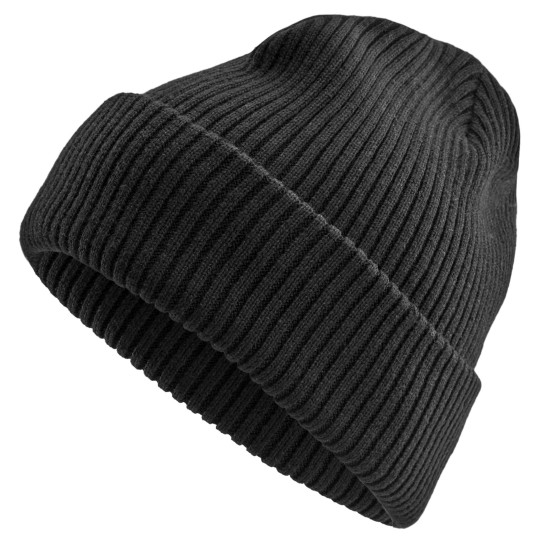

#ex: united states > south > sodapop#please rb so more people see#american english#australian english#british english#canadian english#english#english language#dialects#accents#american accent#australian accent#british accent#canadian accent#english accent#america#australia#england#canada#those four are my target audience but all answers from around the world are welcome!!#tumblr#discourse#experiment
26K notes
·
View notes
Text
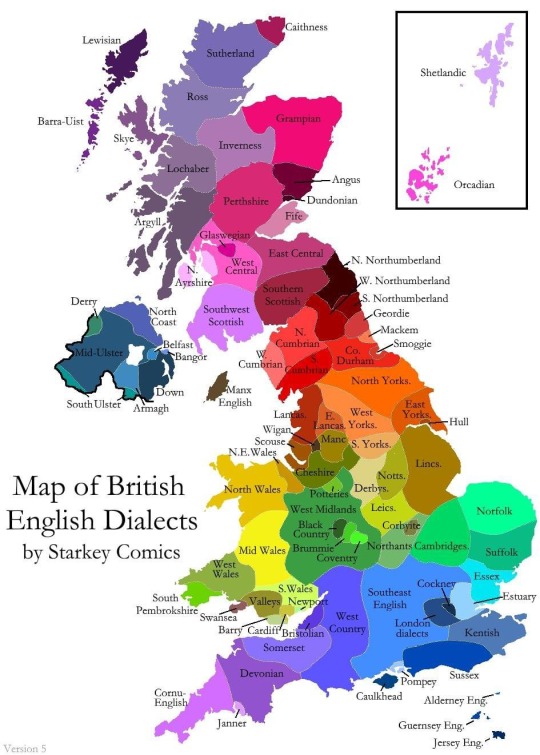
Also every native British and Irish language
1 note
·
View note
Text
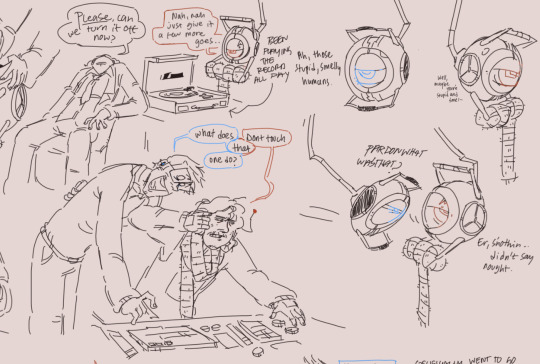
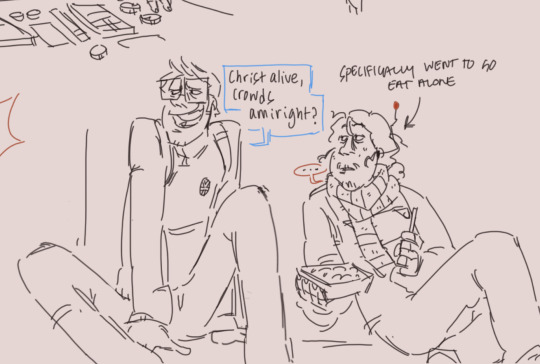
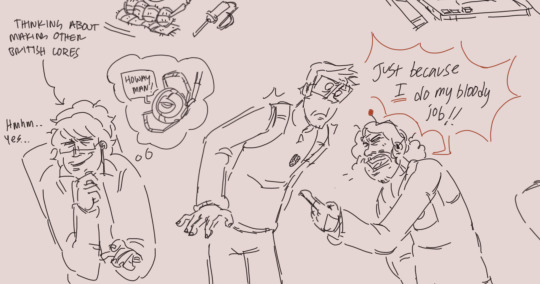
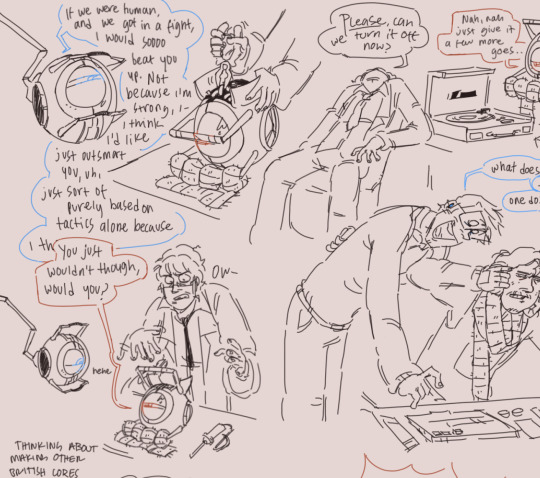
silly little guys doing silly little things..
#some oc and Wheatley interaction#I love my little oc core I just don’t know what to call him#me not beinig able to choose a consistent design for human Wheatley#also the thought of just making as many cores with as many different British dialects as I can is so funny#their relationship is not based on the xfm arguments Karl and Steve get into noooo not at all what are you talking about#portal 2#portal fanart#wheatley portal 2#core oc#portal 2 fanart#Wheatley#oc#thatsonehellofanart#human wheatley
59 notes
·
View notes
Text
My one compliant with Prodigy is that Zero said math.
They are British! They smoke fags behind Tesco! They won't drink tea made in a microwave! They eat beans on toast!
They'd say maths! They know it's a plural word, they know mathematics contains multitudes! They wouldn't say math!
#the universal translator did them DIRTY#does picard ever say either?#or julian?#i know picard says lad but i can't think of any other britishisms from the top of my head#the universal translators... they take the dialect away....#i know picard is French but hes british isnt he#prodigy#star trek prodigy#if anyone saw me misspell prodigy no you didn't
23 notes
·
View notes
Text
I like to imagine that the fed workers on quesadilla island have their own dialect of sign language that they created themselves over time. Cuz sign language is so different and is as varied as spoken language is and I think it would be really cool if there was like. Quesadilla Sign Language. or something
#txt#qsmp#qsmp headcanons#i think the eggs also pick it up but also know the sign versions of their native language(s)#also dialect isnt the word i was looking for here but idk how else to describe there being multiple sign languages that are all different#like how english has different dialects but sign language is a whole different language between those#like american and british english have dialect differences. but ASL and BSL are just completely separate
40 notes
·
View notes
Text

British English Dialects
21 notes
·
View notes
Text
I DONT WANNA BE RUDE but i dont get why people wanna fuck that vampire twink so much
#I CANT FUCKIGN COMPLAIN DO YOU SEE THE FUCKING CHARACTERS IM IN LVOE WITH?#FUCKING BENNY FROM FNV. HIS ANNOYING ASS#POSTAL DUDE. CMON#maybe its cause hes british#i dont know.#benny isnt much better his dialect is just new vegas gambler from the 30s#NO HATE TO ASTARION LIKERS OR WHATEVER i just fundementally do not like him#also im not into vampires. im into computers.
10 notes
·
View notes
Text
i find characters that have distinct ways of talking whether it’s their behavior/dialect or inflection extremely interesting
like i can tell it’s them by the dialog or inflection alone even if it’s not their voice
like it’s the guy! it’s you! i can’t see you but you’re the guy!
#characters#voice acting#character dialogue#shitpost#dialect#inflection#fiction#writing#benrey hlvrai#karl heisenberg re8#i guess british people unfortunately#tw british#invader zim#does zim count? i think he does#tf2#tf2 in general tbh like pretty sure you could show me a line of dialog and i could tell you which merc it is without the voice line
12 notes
·
View notes
Text

you know i completely forgot she was named that in my phone. i also forgot i put her picture as peppa pig being given the death surgery.

#''tea'' is what my dialect calls dinner#or supper#before you ask like people did last time YES i'm british#NO i do not like the drink tea#PLEASE leave me alone about this#PLEASE do not get all dramatic about it (even as a joke)#just treat me like anyone else and move on with your day#you can pay attention to the blog i was looking at i left it in the screenshot on purpose for fun#star's thoughts
8 notes
·
View notes
Text
I have just started learning Portuguese, and I am fascinated by the pronunciation of European Portuguese compared to Quebecois French: we both completely omit a significant proportion of the vowels in our words in basically the same way. But whereas the attitude in Quebec seems to be that this is wrong or bad somehow, when learning European Portuguese it is considered the correct pronunciation. So the immediate conclusion I would draw is that there is still a strong "metropole = correct" bias.
But: Nobody ever seems to imply that the Brazilian pronunciation, where all the vowels are actually pronounced, is inferior. In fact, when trying to learn Portuguese as a second language, Brazilian Portuguese seems to be the standard.
To me, arguing that Quebec French is somehow inferior or less correct than France French has always seemed absurd, like arguing that Canadian or American English are somehow less correct than British English.*
And yet I know that a lot of people think that any English that isn't RP is inferior or incorrect, and that speaking RP means that you "don't have an accent". 🙄
I haven't studied Spanish, so I don't know what the attitudes are towards the respective dialects there.
I imagine this has all been researched and I am curious to learn more. I feel like in my limited experience, on a scale of how much the metropolitan dialect is valued over the colonial dialect, French is the highest and Portuguese is the lowest, with English somewhere in between, but I could be completely off base. I wonder what the factors are that affect these attitudes.
*I should disclose my personal bias that I vastly prefer Quebecois French: It's pithy! It's evocative! It goes straight for the gut.
#lingblr#dialects#linguistics#metropolitan dialect#colonial dialect#language#European Portuguese#Brazilian Portuguese#Quebecois French#France French#British English#American English#Canadian English
43 notes
·
View notes
Note
i can’t tell wether you’re American or not, you write Simon’s dialogues so well almost like you’re British yourself😭
i’m a secret third thing (from new zealand)
7 notes
·
View notes
Text
part 2 of my experiment: what english-speaking country are you from, what region and what do you call the following images? if you don't know what the first image is please try to guess i'd love to see it









#ex: australia > victoria > bread#please rb so more people can see#american english#australian english#british english#canadian english#english#english language#dialects#accents#american accent#australian accent#british accent#canadian accent#english accent#america#australia#england#canada#those four are my target audience but all answers from around the world are welcome!!#tumblr#discourse#experiment#click the link for part one
571 notes
·
View notes
Text
writing fanfic is near impossible. do you guys really say things like “cheeky sod”
#that doesn’t sound right but I don’t know enough about british conversational dialogue to dispute it#I love the word cheeky but it simply is not used in usamerica#I have so much fun listening to my shows and then I try to write something that sounds natural#and it’s like.. is this offensive??#genuinely never get tired of the infinite variety of accents y’all got going on over there#I need to make some sort of map#pop all the taskmaster contestants on it so I can start to see dialect patterns#instead of nodding along sagely#(clueless)#britcom#taskmaster#doctor who
16 notes
·
View notes
Text
Why Americanisms are a boon for the British
“Many phrases the British love to hate are actually old English expressions – while many genuine Americanisms are accepted without a fuss.”
Further Reading:
Words on the move: Why English won’t—and can’t—stay still (like, literally) (John McWhorter)
The stories of English (David Crystal)
19 notes
·
View notes
Text
britpicking? (Ted Lasso)
So, I seem to be continuing to write lots of Ted Lasso Roy/Jamie/Keeley fic. :D Is anyone interested in britpicking? I'd be especially interested in someone who can help with the essentials of a Northern/Mancunian dialect (e.g., when it's appropriate to say something like, "she were sending a text" vs. "she was sending a text") and also with "innit" (which I know is linguistically more complex than just replacing "isn't it" and has been evolving). I'm happy to beta/ameripick in return, if desired.
I currently have a couple WIPs that are a few thousand words each.
#ted lasso#jamie tartt#roy x jamie x keeley#britpicking#questions for the tumblmind#most of my british friends don't watch the show or dislike my ship#so before I force any of them to suffer I figured I should ask around ;)#I'm probably overly cautious#but i don't like to try to imitate a dialect i don't know without help#as i know it could end up reading like a bad parody if i get it really wrong#but the result is that i mostly end up not including any dialect markers at all#not even common things like 'innit'#which is differently inauthentic
47 notes
·
View notes